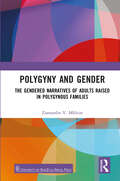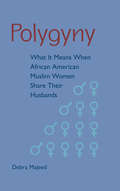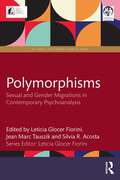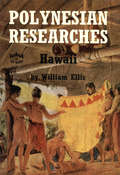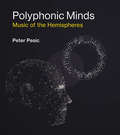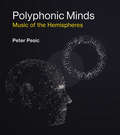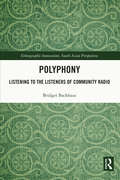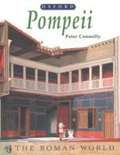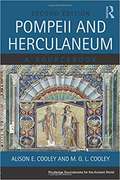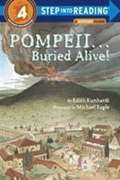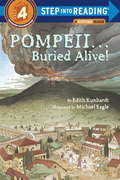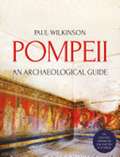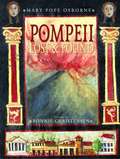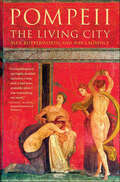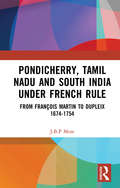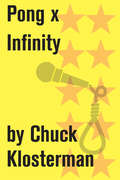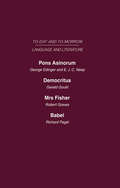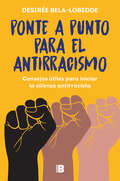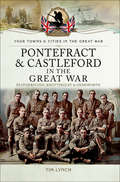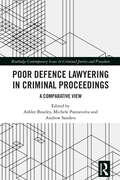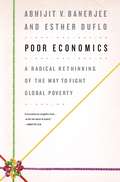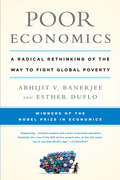- Table View
- List View
Polygyny and Gender: The Gendered Narratives of Adults Raised in Polygynous Families
by Zamambo V. MkhizeThe people of Africa have contrasting perspectives on gender, feminism, and the family from their Western counterparts. Similarly, social structures like, religion, capitalism and the law require a context-specific application to polygyny. This book examines the construction of gender identity in adults raised in Zulu polygynous families in the Hammarsdale area in KwaZulu-Natal, South Africa. It highlights the complexities of gender identities as participants negotiate between modern, constitutional, and individual freedoms and patriarchal, cultural, and communal customs and traditions. The themes also point towards the argument between individuality and collectivism in the creation of gender identity within polygynous families in Zulu culture. The South African Constitution guarantees gender equality and individual rights and freedoms for its citizens, yet customary law practices, like polygyny, appear to contravene these principles. The participants reveal that although women and men experience different consequences, they cite similar prevalent factors like gender role socialisation, naming practices and the doctrine of seniority, influencing their gender identity construction. Print edition not for sale in Sub Saharan Africa.
Polygyny: What It Means When African American Muslim Women Share Their Husbands
by Majeed Majeed"Captivating, provocative, and groundbreaking. Taking up the mandate that women's realities matter, Majeed writes with depth and analytical rigor about a topic we have scarcely begun to understand."--Amina Wadud, author of Inside The Gender Jihad "Tackles the contours and intimacies of a much practiced but seldom spoken about quasi-marriage that leaves women without legal support. A much-needed text on an extremely sensitive topic. Majeed excavates this terrain with finesse and a deft scholarly hand."--Aminah Beverly McCloud, coeditor of An Introduction to Islam in the 21st Century "Utilizes ethnographic research methods to imaginatively and constructively complexify the reality of polygyny in the lives of African American Muslim women."--Linda Elaine Thomas, author of Under the Canopy "Majeed's womanist approach is critical, yet balanced enough to include the concerns of women, men, and children, affording readers a broad and vital gaze into the lives of these unconventional households."--Zain Abdullah, author of Black Mecca "A powerful and long overdue study of polygyny in African American Muslim communities."--Shabana Mir, author of Muslim American Women on Campus Debra Majeed sheds light on families whose form and function conflict with U.S. civil law. Polygyny--multiple-wife marriage--has steadily emerged as an alternative to the low numbers of marriageable African American men and the high number of female-led households in black America. This book features the voices of women who welcome polygyny, oppose it, acquiesce to it, or even negotiate power in its practices. Majeed examines the choices available to African American Muslim women who are considering polygyny or who are living it. She calls attention to the ways in which interpretations of Islam's primary sources are authorized or legitimated to regulate the rights of Muslim women. Highlighting the legal, emotional, and communal implications of polygyny, Majeed encourages Muslim communities to develop formal measures that ensure the welfare of women and children who are otherwise not recognized by the state. Debra Majeed is professor of religious studies at Beloit College.
Polymorphisms: Sexual and Gender Migrations in Contemporary Psychoanalysis (IPA Sexual and Gender Diversity Studies)
by Leticia Glocer Fiorini Jean Marc Tauszik Silvia R. AcostaPolymorphisms presents an overview of key theories, ideas and issues within psychoanalysis relating to sexual and gender diversity.The chapters consider key topics including the Oedipus-castration complex, the link between sexuality and gender, identity, and gender violence, while also addressing queer/transgender subjectivities, countertransference, and the implicit and explicit theories that shape clinical practice. Taking an intra and interdisciplinary approach, the collection considers ideas that enrich the clinical approach while highlighting contradictions and heterogeneities, and moving away from essentialisms. As a whole, the book delimits debates and questions rather than offering definitive answers, taking the perspective that psychoanalysis is a discipline in continuous interrogation of its own propositions.Polymorphisms: Sexual and Gender Migrations in Contemporary Psychoanalysis will be essential reading for psychoanalysts and psychotherapists in practice and in training. It will also be of interest to academics of psychoanalytic studies and gender studies.
Polynesian Researches: Hawaii
by William EllisPolynesian Researches:Hawaii is the famous record of the author's visit to the Hawaiian Islands in the early nineteenth century. <P><P>It includes an account of Hawaiian history, government, religion , warfare, and traditions- a general survey of Hawaiian life. More than this, it is the author's personal observations of Hawaiian manners and customs and is invaluable to anyone interested in old Hawaii.The author, Rev. William Ellis, lived in Polynesia as a missionary from 1817 to 1825. He spent much of his time in Tahiti and soon became fluent in the language. Before returning to England, he seized an opportunity to visit the Hawaiian Islands. He was soon able to talk with the natives in the Hawaiian language and made a tour of the island of Hawaii. On his tour he talked with chiefs, common people Hawaiian holy-men, and divinely possessed oracles. He climbed volcanoes, rode canoes, and visited the sight of Captain Cook's death. Besides the description of his tour, this book includes an account of Maui, Kahoolawe, Molokini, Lani, Molokai, Oahu, Kauai, Hiihau, and Kaula.The book is full of interesting descriptions of the author's encounters with Hawaiians. It is fast-moving and easy-reading. This book, an encyclopedic account of traditional Hawaii.
Polyphonic Minds: Music of the Hemispheres
by Peter PesicPolyphony -- the interweaving of simultaneous sounds -- is a crucial aspect of music that has deep implications for how we understand the mind. In Polyphonic Minds, Peter Pesic examines the history and significance of "polyphonicity" -- of "many-voicedness" -- in human experience. Pesic presents the emergence of Western polyphony, its flowering, its horizons, and the perspective it offers on our own polyphonic brains. When we listen to polyphonic music, how is it that we can hear several different things at once? How does a single mind experience those things as a unity (a motet, a fugue) rather than an incoherent jumble? Pesic argues that polyphony raises fundamental issues for philosophy, theology, literature, psychology, and neuroscience -- all searching for the apparent unity of consciousness in the midst of multiple simultaneous experiences. After tracing the development of polyphony in Western music from ninth-century church music through the experimental compositions of Glenn Gould and John Cage, Pesic considers the analogous activity within the brain, the polyphonic "music of the hemispheres" that shapes brain states from sleep to awakening. He discusses how neuroscientists draw on concepts from polyphony to describe the "neural orchestra" of the brain. Pesic's story begins with ancient conceptions of God's mind and ends with the polyphonic personhood of the human brain and body. An enhanced e-book edition allows the sound examples to be played by a touch.
Polyphonic Minds: Music of the Hemispheres (The\mit Press Ser.)
by Peter PesicAn exploration of polyphony and the perspective it offers on our own polyphonic brains.Polyphony—the interweaving of simultaneous sounds—is a crucial aspect of music that has deep implications for how we understand the mind. In Polyphonic Minds, Peter Pesic examines the history and significance of “polyphonicity”—of “many-voicedness”—in human experience. Pesic presents the emergence of Western polyphony, its flowering, its horizons, and the perspective it offers on our own polyphonic brains. When we listen to polyphonic music, how is it that we can hear several different things at once? How does a single mind experience those things as a unity (a motet, a fugue) rather than an incoherent jumble? Pesic argues that polyphony raises fundamental issues for philosophy, theology, literature, psychology, and neuroscience—all searching for the apparent unity of consciousness in the midst of multiple simultaneous experiences. After tracing the development of polyphony in Western music from ninth-century church music through the experimental compositions of Glenn Gould and John Cage, Pesic considers the analogous activity within the brain, the polyphonic “music of the hemispheres” that shapes brain states from sleep to awakening. He discusses how neuroscientists draw on concepts from polyphony to describe the “neural orchestra” of the brain. Pesic's story begins with ancient conceptions of God's mind and ends with the polyphonic personhood of the human brain and body. An enhanced e-book edition allows the sound examples to be played by a touch.
Polyphony: Listening to the Listeners of Community Radio (Ethnographic Innovations, South Asian Perspectives)
by Bridget BackhausThis book looks at the rich and complex history of broadcasting and community broadcasting in the multicultural and multilingual milieu in India. It explores the world of community radio and how community radio broadcasters hear and speak to their audiences under the overarching theme of polyphony. The book discusses the socio-historical contexts which allowed community radio to thrive in India. It highlights its potential to create alternative spaces of representation, and opportunity and its importance in preserving and disseminating local knowledge and traditions. The author weaves together ethnographic research and literature, as well as personal narratives and stories of those involved in the field. Further, the monograph critically examines the impact of development agendas on community projects and processes, discussing in detail the pervasiveness of the development discourse in every aspect of community radio and how it manifests on air. It also illustrates the limitations of community radio, within the context of its participation in the “spectacle of development”. Accessible and deeply insightful, this book will be of interest to researchers and students of cultural studies, sociology, social anthropology, media and communication studies, and South Asian studies.
Pomo Indian Myths and Some of their Sacred Meanings
by Cora Clark Texa Bowen WilliamsIn this volume, which was first published in 1954, some forty-odd myths collected at various Pomo settlements are given clearly and concisely by Cora Clark and Texa Bowen Williams. It includes a separate section in which the sister authors provide a partial analysis of the myths based upon the interpretations given them by the storytellers. The meanings attributed to the tales include much nature symbolism: coyote, in an abbreviated creation myth, for example, is said to represent earth; Frog Woman, water; Kingfisher, air; and the Lizard, fire. In other tales, the number four is said to represent the growth principle; arrows, heat rays; and so on. This type of symbolism has not been attributed to the Pomo in previous discussions, and is thus represented here for the first time. A fascinating addition to the literature on Pomo mythology!
Pompeii (The Roman World)
by Peter ConnollyFrom the remarkable pen of Peter Connolly comes a comprehensive look at the ancient city of Pompeii. He begins with the scientific facts: How was Pompeii destroyed? How did Mount Vesuvius become an active volcano? What happened during the eruption? How long did Pompeii lay buried and how was it finally rediscovered? What was Pompeii's history before the disaster? Then, Peter Connolly does what he does better than anyone--he rebuilds the past in words and pictures, allowing us to imagine what it was like to live in old Pompeii. Like an archaeological detective, he sifts through the ruins and artifacts to reconstruct one area of the town in minute detail. With maps and cross-sections, photographs, drawings, and engrossing, fact-filled text, Connolly takes us into the very homes of its citizens--into the kitchens, atriums, bedrooms and out into the gardens. We learn what the furniture looked like, how the homes were lighted and heated, what kind of jewelry was popular, and what the gladiators wore. We view the varied styles of architecture and decoration, attend a grand dinner party, visit local shops, go to the theater, to a public bath, and to the gladiators' arena. We gain an understanding of this ancient civilization, and begin to see how much was lost when the city fell prey to the tons of lava and ashes that fell on it during the devastating disaster.
Pompeii and Herculaneum: A Sourcebook (Routledge Sourcebooks For The Ancient World Series)
by Alison E. Cooley M.G.L. Cooley<P>The original edition of Pompeii: A Sourcebook was a crucial resource for students of the site. Now updated to include material from Herculaneum, the neighbouring town also buried in the eruption of Vesuvius, Pompeii and Herculaneum: A Sourcebook allows readers to form a richer and more diverse picture of urban life on the Bay of Naples. <P>Focusing upon inscriptions and ancient texts, it translates and sets into context a representative sample of the huge range of source material uncovered in these towns. From the labels on wine jars to scribbled insults, and from advertisements for gladiatorial contests to love poetry, the individual chapters explore the early history of Pompeii and Herculaneum, their destruction, leisure pursuits, politics, commerce, religion, the family and society. Information about Pompeii and Herculaneum from authors based in Rome is included, but the great majority of sources come from the cities themselves, written by their ordinary inhabitants – men and women, citizens and slaves. <P>Encorporating the latest research and finds from the two cities and enhanced with more photographs, maps, and plans, Pompeii and Herculaneum: A Sourcebook offers an invaluable resource for anyone studying or visiting the sites.
Pompeii...Buried Alive! (Step into Reading)
by Edith Kunhardt DavisIllus. in full color. "The drama of natural disasters provides prime material to entice young independent readers. In this volume, the account of the eruption of Mount Vesuvius describes village life 2,000 years ago, the eruption itself and its aftermath, and the excitement when the buried town is rediscovered centuries later. A lively and factual glimpse of a devastating moment in history, in an accessible, attractive package."--Publishers Weekly.
Pompeii: An Archaeological Guide
by Paul WilkinsonThe resonant ruins of Pompeii are perhaps the most direct route back to the living, breathing world of the ancient Romans. Two million visitors annually now walk the paved streets which re-emerged, miraculously preserved, from their layers of volcanic ash. Yet for all the fame and unique importance of the site, there is a surprising lack of a handy archaeological guide in English to reveal and explain its public spaces and private residences. This compact and user-friendly handbook, written by an expert in the field, helpfully fills that gap. Illustrated throughout with maps, plans, diagrams and other images, Pompeii: An Archaeological Guide offers a general introduction to the doomed city followed by an authoritative summary and survey of the buildings, artefacts and paintings themselves. The result is an unrivalled picture, derived from an intimate knowledge of Roman archaeology around the Bay of Naples, of the forum, temples, brothels, bath-houses, bakeries, gymnasia, amphitheatre, necropolis and other site buildings - including perennial favourites like the House of the Faun, named after its celebrated dancing satyr.
Pompeii: Lost and Found
by Mary Pope OsborneA lively history of the eruption of Mount Vesuvius in AD 70, which changed the world of one of the richest towns in the Roman Empire, Pompeii.
Pompeii: The Living City
by Alex Butterworth Ray Laurence“Splendidly recreate[s] the bustling life of this Roman town, as well as the eruption . . . a first-rate and compelling history of an ancient city.” —Publishers WeeklyThe ash of Mt. Vesuvius preserves a living record of the complex and exhilarating society it instantly obliterated two thousand years ago. In this highly readable, lavishly illustrated book, Alex Butterworth and Ray Laurence marshal cutting-edge archaeological reconstructions and a vibrant historical tradition dating to Pliny and Tacitus; they present a richly textured portrait of a society not altogether unlike ours, composed of individuals ordinary and extraordinary who pursued commerce, politics, family and pleasure in the shadow of a killer volcano. Deeply resonant in a world still at the mercy of natural disaster, Pompeii recreates life as experienced in the city, and those frantic, awful hours in AD 79 that wiped the bustling city from the face of the earth.Please note that this ebook does not contain the photo insert that appears in the print book.“A compelling and yet highly detailed narrative. I only wish it had been available when I was researching my novel.” —Robert Harris, New York Times–bestselling author of Conclave and Pompeii“An immensely evocative, well-written and powerful portrait of what life was really like in Pompeii.” —Tom Holland, author of Dominion“Brings Pompeii startlingly alive once more.” —History Today“A vivid portrait of place and people before the cataclysms of AD 62 and 75.” —Church Times“Accessible, wide-ranging and evocative and makes surprisingly compelling reading.” —Catholic Times“For those looking to be transported back to the living city, it will be hard to resist.” —Oxford Times
Ponary Diary, 1941-1943: A Bystander's Account of a Mass Murder
by Kazimierz Sakowicz Yitzhak Arad Laurence WeinbaumAbout sixty thousand Jews from Wilno (Vilnius, Jewish Vilna) and surrounding townships in present-day Lithuania were murdered by the Nazis and their Lithuanian collaborators in huge pits on the outskirts of Ponary. Over a period of several years, Kazimierz Sakowicz, a Polish journalist who lived in the village of Ponary, was an eyewitness to the murder of these Jews as well as to the murders of thousands of non-Jews on an almost daily basis. He chronicled these events in a diary that he kept at great personal risk. Written as a simple account of what Sakowicz witnessed, the diary is devoid of personal involvement or identification with the victims. It is thus a unique document: testimony from a bystander, an "objective" observer without an emotional or a political agenda, to the extermination of the Jews of the city known as "the Jerusalem of Lithuania. "Sakowicz did not survive the war, but much of his diary did. Painstakingly pieced together by Rahel Margolis from scraps of paper hidden in various locations, the diary was published in Polish in 1999. It is here published in English for the first time, extensively annotated by Yitzhak Arad to guide readers through the events at Ponary.
Pondicherry, Tamil Nadu and South India under French Rule: From François Martin to Dupleix 1674-1754
by J.B.P. MoreThis is a study of the colonization of Pondicherry, Tamil Nadu and South India by the French during the eighteenth century, and their interactions with the Indian rulers and populations in the political, economic, social and religious spheres. French Governors based in Pondicherry since François Martin up to Dupleix never acquired any territory for France through outright conquest. They or their masters in France never had any grand plan to establish a French empire in India. Some Indian rulers were friendly with the French and the English as it served their interests. The study demonstrates that the French colonizers and missionaries would not have survived in India without the collaboration of the Indian dubashes, merchants, certain Indian rulers and military men.This collaboration was not on an equal footing, as the sepoys, merchants and dubashes were always subordinate and submissive to the Europeans. Even Ananda Ranga Poullé, the most famous of the Indian dubashes had to resort to the art of flattery to be in the good books of his ‘master’. European arrival and presence in India heralded the beginning of a cultural clash between the Europeans and Indians, in which the former had the upper hand. There was never any partnership or ‘master-bania’ relationship between the French and the Indians. Instead, the relationship had all the trappings of a ‘master-subordinate’ relationship, where the subordinate even though he might be a dubash was always at the mercy of the colonizers. The element of force, aggressivity and violence was omnipresent in European presence and expansion in India, in the political, economic and religious fields.Please note: This title is co-published with X. Taylor & Francis does not sell or distribute the Hardback in India, Pakistan, Nepal, Bhutan, Bangladesh and Sri Lanka.
Pong x Infinity
by Chuck KlostermanOriginally collected in Chuck Klosterman IV and now available both as a stand-alone essay and in the ebook collection Chuck Klosterman on Media and Culture, this essay is about video games.
Pons Asinorum, or the Future of Nonsense Democritus or the Future of Laughter Mrs Fisher or the Future of Humour, Babel, or the Past, Present and Future of Human Speech: Today and Tomorrow Volume Twenty-Two
by Edinger, Gould, Graves, PagetPons Asinorum Or The Future of Nonsense George Edinger and E J C Neep Originally published in 1929. "A most entertaining essay, rich in quotation from the old masters of clownship’s craft." Saturday Review The author maintains that true nonsense must be aimless humour – the humour that makes fun as opposed to the humour that makes fun of something. 88pp Democritus Or The Future of Laughter Gerald Gould Originally published in 1929. "Democritus is bound to be among the favourites of the series. Gould’s humour glances at history, morality, and humanity…wise and witty writing." Observer Democritus is intended to illustrate the prevailing fashion in laughter and on the basis of historical and philosophical principles to forecast the humour of the future. 90pp Mrs Fisher Or The Future of Humour Robert Graves Originally published in 1928 "Mr Graves is the best man who could have been chosen to write on this subject." Daily Express "…perfectly irresponsible, as a joker should be." The Times This volume analyzes humour with a solemnity which becomes almost nightmarish. 90pp Babel Or the Past, Present and Future of Human Speech Richard Paget Originally published in 1930. "…stimulating and absorbing." Journal of Education This volume discusses human speech and treats it as a growth which must be tamed if it is to fulfil its highest purpose as a symbolism for human thought. 86pp
Ponte a punto para el antirracismo: Consejos útiles para iniciar la alianza antirracista
by Desirée Bela-LobeddeNo basta con no ser racista: hay que ser antirracista ¿Qué es la supremacía y el privilegio blanco? ¿Existe un racismo institucional? ¿Cómo nombramos y nos comunicamos con los demás? ¿Cuál es el problema de la apropiación cultural? ¿España es racista? ¿Yo soy racista? ¿Cómo se puede contribuir a cambiar el paradigma? Este libro es una guía fundamental hacia la educación antirracista. A través de apuntes teóricos e históricos, reflexiones, consejos y ejercicios para analizar nuestros comportamientos, la activista Desirée Bela-Lobedde -autora de Ser mujer negra en España y Minorías- recoge los principios básicos del antirracismo y nos invita a poner en marcha de manera práctica alternativas para contribuir activamente a un cambio real. «Para que el racismo desaparezca, y si queremos que desaparezca de verdad, hay que tener la educación necesaria que nos permita mirar con ojos críticos la raíz del sistema que genera esas desigualdades, y analizar cómo, con nuestras acciones, contribuimos a su perpetuación o a su desmantelamiento».
Ponteach, or the Savages of America
by Tiffany PotterPontiac, or Ponteach, was a Native American leader who made war upon the British in what became known as Pontiac's Rebellion (1763 to 1766). One of the earliest accounts of Pontiac is a play, written in 1766 by the famous frontier soldier Robert Rogers, of the Rangers. Ponteach, or the Savages of America is one of the only early dramatic works composed by an author with personal knowledge of the Indigenous nations of North America. Important both as a literary work and as a historical document, Ponteach interrogates eighteenth-century Europe's widespread ideological constructions of Indigenous peoples as either innocent and noble savages, or monstrous and violent Others.Presented for the first time in a fully annotated edition, Ponteach takes on questions of nationalism, religion, race, cultural identity, gender, and sexuality; the play offers a unique perspective on the Rebellion and on the emergence of Canadian and American identities. Tiffany Potter's edition is supplemented by an introduction that critically and contextually frames the play, as well as by important appendices, including Rogers' ethnographic accounts of the Great Lakes nations.
Pontefract & Castleford in the Great War: Featherstone, Knottingley & Hemsworth (Your Towns & Cities in the Great War)
by Timothy LynchBy the end of 1914, 15,000 Yorkshire miners had volunteered for the army, with around 1,000 from a single Castleford pit. Over the next four years these courageous men would write home from the killing fields of France, Gallipoli, Italy, Mesopotamia and Africa. As the men marched away, the families they left behind were about to experience a war that reached into every home, touching every man, woman and child in the country. This was total war.Local women some still teenage girls faced the gruelling hardships and dangers of munitions work. Some would die for their country. Former male pupils at the Quaker school struggled with their consciences. Some would fight, some would serve in the front lines as ambulance men and others would go to prison for their beliefs. Using original material, diaries, letters and newspaper reports, this enthralling book tells the fascinating and largely forgotten story of the Great War at home. Covering the terror of Zeppelin raids and anti-German rioting, foreign refugees, a story of true love among the gentry, the vexed question of whether bookies were essential war workers and tales of heroism at the front, here is the war as experienced by the dedicated people of Pontefract and Castleford.
Poor Defence Lawyering in Criminal Proceedings: A Comparative View (Routledge Contemporary Issues in Criminal Justice and Procedure)
by Andrew Sanders Ashlee Beazley Michele PanzavoltaThis collection discusses the concept of ‘poor quality’ criminal defence representation and assistance, so-termed poor lawyering. It does so from diverse perspectives, including legal and criminological. The work presents an overview of the issue of the quality of legal assistance in criminal proceedings, so allowing a better understanding of the potential limits and problems. The volume is divided into three parts which, over 14 chapters, offer analyses of poor lawyering across national and supranational legal systems, including Belgium, Germany, Greece, Italy, England and Wales, the United States, and the European Court of Human Rights; the specific challenges of poor lawyering, such as regulation of counsel before the International Criminal Court, through codes of conduct, and in cross-border proceedings within Europe; the individual fault and external pressures of criminal defence lawyers; the ‘missed opportunity’ of pre-charge engagement; the importance of insights from legal and criminological psychology; and the role of neurodivergent defendants in the adaptation of the defence lawyer’s assistance. The collection concludes with a transversal and comparative analysis of the effectiveness of defence and the independence of lawyers. With contributions from academics and practitioners from a range of backgrounds, the book will be a valuable resource for students, academics, researchers, and policymakers working in the area of criminal justice.
Poor Economics
by Abhijit Banerjee Esther DufloWinner of the 2011Financial Times/Goldman Sachs Best Business Book of the Year Award Billions of government dollars, and thousands of charitable organizations and NGOs, are dedicated to helping the world's poor. But much of their work is based on assumptions that are untested generalizations at best, harmful misperceptions at worst. Abhijit Banerjee and Esther Duflo have pioneered the use of randomized control trials in development economics. Work based on these principles, supervised by the Poverty Action Lab, is being carried out in dozens of countries. Drawing on this and their 15 years of research from Chile to India, Kenya to Indonesia, they have identified wholly new aspects of the behavior of poor people, their needs, and the way that aid or financial investment can affect their lives. Their work defies certain presumptions: that microfinance is a cure-all, that schooling equals learning, that poverty at the level of 99 cents a day is just a more extreme version of the experience any of us have when our income falls uncomfortably low. This important book illuminates how the poor live, and offers all of us an opportunity to think of a world beyond poverty. Learn more at www. pooreconomics. com
Poor Economics: A Radical Rethinking of the Way to Fight Global Poverty
by Esther Duflo Abhijit V. BanerjeeThe winners of the Nobel Prize in Economics upend the most common assumptions about how economics works in this gripping and disruptive portrait of how poor people actually live. Why do the poor borrow to save? Why do they miss out on free life-saving immunizations, but pay for unnecessary drugs? In Poor Economics, Abhijit V. Banerjee and Esther Duflo, two award-winning MIT professors, answer these questions based on years of field research from around the world. Called "marvelous, rewarding" by the Wall Street Journal, the book offers a radical rethinking of the economics of poverty and an intimate view of life on 99 cents a day. Poor Economics shows that creating a world without poverty begins with understanding the daily decisions facing the poor.
